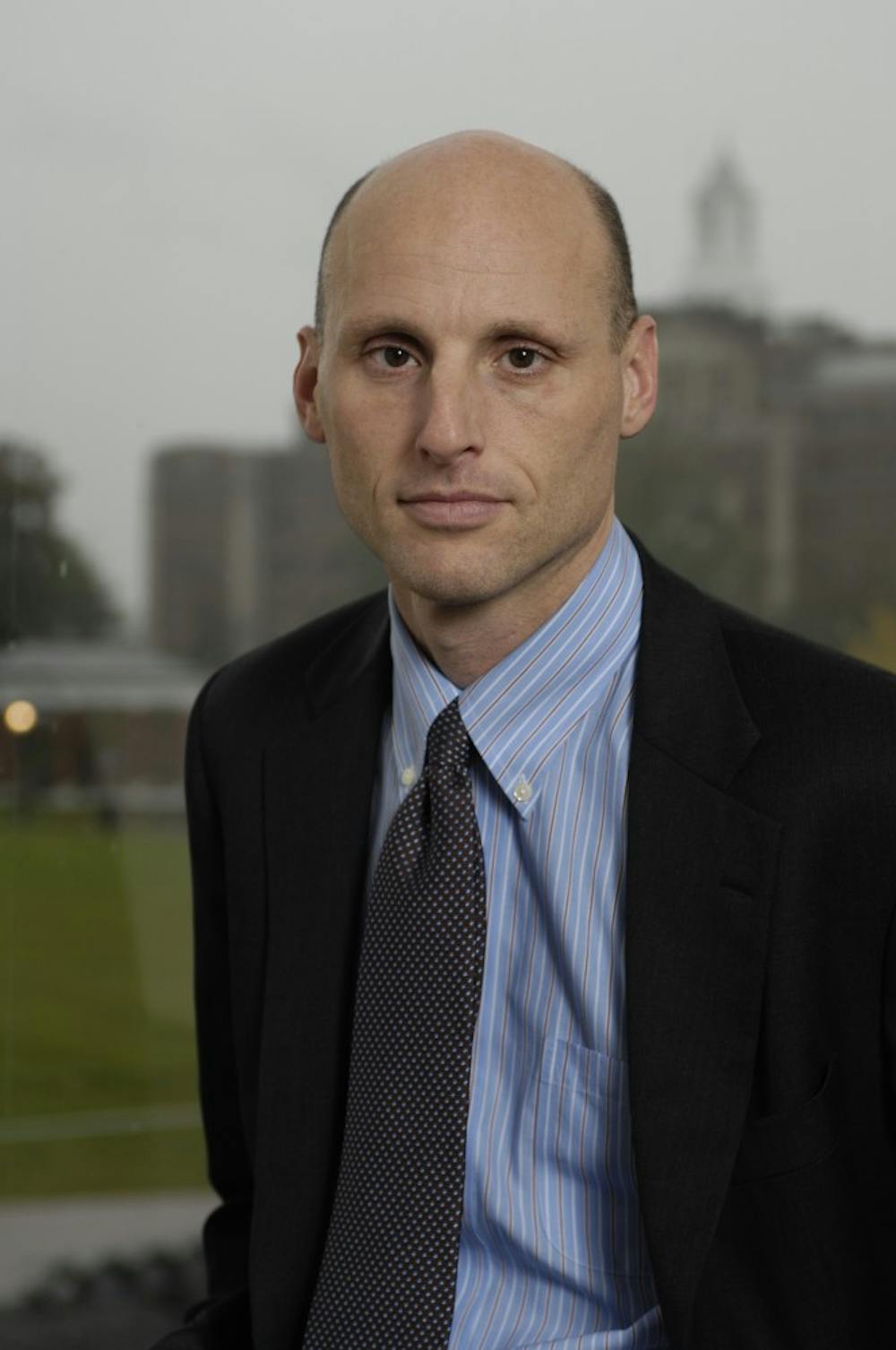Michael Strine took office as executive vice president and chief operating officer July 1, a day after Leonard Sandridge stepped down from that position after 44 years at the University.
President Teresa A. Sullivan named Strine, formerly the vice president for finance, chief financial officer and treasurer at Johns Hopkins University, to the position following a yearlong search executed by a committee chaired by Commerce School Dean Carl Zeithaml.
Zeithaml said a small group of finalists was picked after the committee, which was made up of a diverse group of both faculty and staff, held "extensive interviews and conversations" with a large pool of candidates.
Ultimately, Sullivan selected the final candidate.
Strine's new responsibilities are broad and expansive. They include finance, facilities, human resources, public safety and other services that support faculty, staff and students. The most important aspect of his job is to "enable, support and align the work of the strong people in these areas," Strine said.
In an email, Strine said he believes his experience with "aligning resources in support of the mission" will "add value to current efforts to achieve our goals."
He said these goals include increasing the number of graduate students, maintaining the quality of the undergraduate experience, bringing in more research to the University and advancing the medical center.
Strine said building trust and strong relationships between the Board, president and provost as well as deans, faculty and staff "is critical to success in making the most of the opportunities ahead."\nHe said he was drawn to the job because of what he believes is a critical time for public universities.
"Some question the public value of university-based research, the cost of undergraduate and graduate education," Strine said.
He added this is especially true for public institutions because "the public investment and decision-making is much more transparent and therefore more highly accountable." He emphasized an "effective and efficient use of resources" at the University.
Although Strine is not an alumnus like Sandridge, Zeithaml said he believes Strine has a strong "understanding and appreciation" for the University.
"Having an understanding for cultural traditions starting with Jefferson to current day is an important part of being a successful leader," Zeithaml said. Strine seemed to understand the features of "what made U.Va., U.Va.," he said.
Strine is aware of his predecessor's contribution to the University.
"No one else could be Leonard Sandridge," Strine said. "But I can be who I am and I can do my best and work hard."
Zeithaml described Sandridge as not only respected and admired, but beloved.
"[Sandridge] is a living legend," he said. "To replace him was a daunting task, I'll admit."
Sandridge will remain at the University for a year as consultant for the president. Sandridge said he will make the transition "as smooth as possible ... to make sure Mr. Strine has all that he needs to do his job his way, and I am confident he will"







